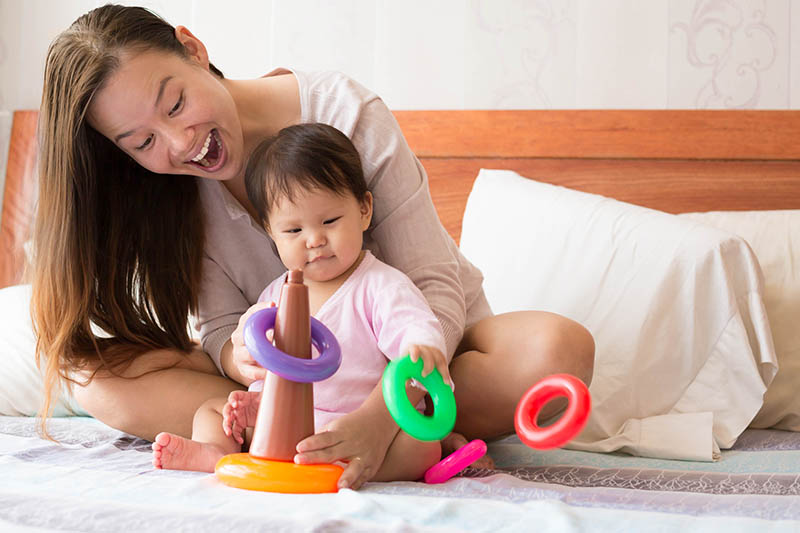Families For Life | Bonding With Your Child

Being a parent is the most significant experience and privilege that one can have with wide-reaching consequences. Raising physically and emotionally healthy children is what most parents strive to do while balancing busy schedules daily. At the heart of raising emotionally healthy children are good parent-child relationships. This starts with bonding with your child. Based on research, here are some basic but essential tips for creating that bond between you and your child.
Tips to consider:
Put aside time for your child
Commit to a regular one-on-one time with your child. Most parents do not have a scheduled time with each child and tend to interact with them on an ad-hoc basis (e.g., when they are in the car on the way to school, shopping for groceries together). Although these are good times to talk together, children do need more than these. Setting aside special time for your child sends an important message that they are more important and are worthy of your time. For example, set aside 30 minutes or an hour a week to do an activity that your child likes (e.g., playing board games, chatting over a favourite dessert). Your child will feel not only connected with you but feel valued and accepted.
Positively communicate with your child
Talk with your child instead of talking at or about your child. Bring yourself to your child’s level. If you want to understand what your child is thinking or feeling, ask and listen. Do not pass judgment. Acknowledge your child’s ideas and feelings even if you disagree. You can also share your opinions and feelings with your child. In addition, do constantly reassure your child of your love through verbal expressions such as “I love you”, and non-verbal gestures such as a kiss, hug, or a pat on the shoulder.
Practise empathy
Empathy is putting ourselves into the other person’s shoes, seeing things from their perspective and making a response that reflects their feelings accurately. The more you pick up on your child’s feelings and learn how to process them, the more your child feels understood and willing to share their problems and difficulties. For example, if your child feels upset over a conflict with a friend, you can say, “I can see you are very upset with Jane ignoring you in school. I don’t like it too if that happened to me. It does sound confusing why she would suddenly do that.” By showing that you “get” their experience, and how they feel, this would allow your child to open up and share more with you.
Problem-solve with your child
When your child shares about her problems, you need not provide the solution all the time or tell her what to do. Neither do you want to leave her to deal with the problem by herself. Be your child’s partner in problem-solving. Listen and understand the situation. Next, find out how your child thinks or feels about it and what she can do. Provide other options if you can. Help your child think of possible consequences for each option. Together, you and your child can then decide on the best solution. Solving problems with your child not only teaches her an important life skill, it also develops a strong bond between you and your child as both of you conquer each problem together.
Praise your child
Praise your child when she does something well or when she puts in the effort. This affirms and allows your child to identify her strengths. To be effective, praise your child on specific behaviours in a sincere manner. Instead of just saying “good job”, try, “That was really good of you to clean your room without being asked, it is very neat”. This clearly communicates to your child the positive behaviour you appreciate. At the same time, your child feels confident about herself and understands that she is special to you.
Contributed by:
Psychology Service, KK Women's and Children's Hospital